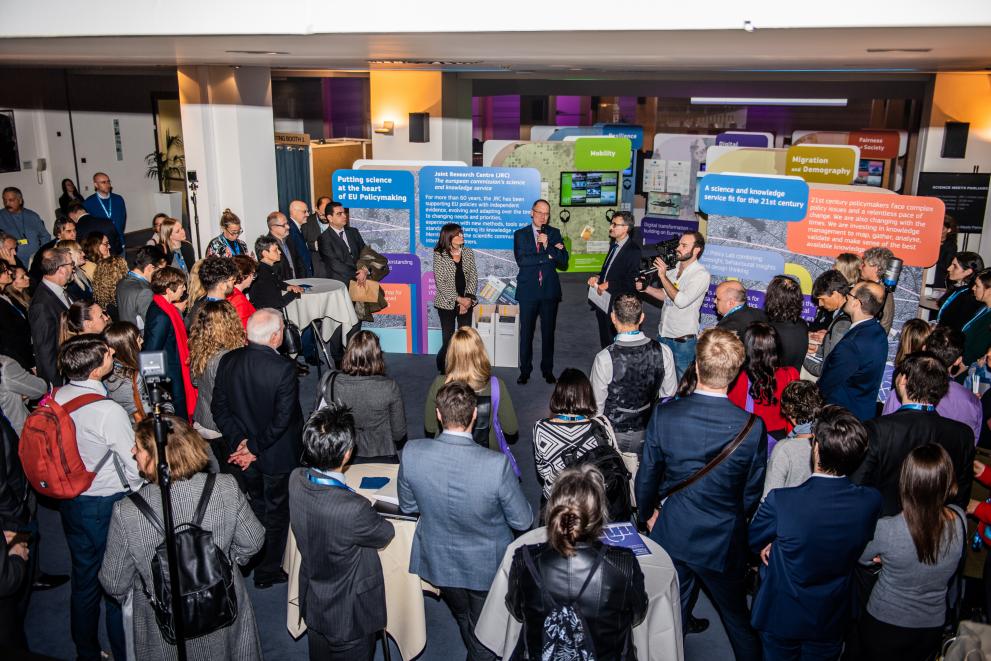
On 6-7 February 2019, in Brussels, senior policy-makers and leading scientists will discuss the role of science in tackling emerging challenges such as the impact of artificial intelligence, the rise of fake news, increasing the resilience of our societies in the face of relentless change and engaging citizens in political decision-making.
The discussion will take place within the context of the annual "Science meets Parliaments" conference.
Tibor Navracsics, Commissioner for Education, Culture, Youth and Sport, responsible for the Joint Research Centre said ahead of the event: "This year Europeans will cast their votes and show the way they want our union to go. Their choice will be influenced by their values, perceptions, fears and hopes about technological disruption and demographic change and their understanding of the big issues we face. "Science meets Parliaments" will showcase the scientific facts behind the debate to enhance policymakers' understanding of the issues we all deeply care about."
Commissioner Navracsics, Dimitrios Papadimoulis, Vice-President of the European Parliament, and Jerzy Buzek, Chair of the Committee on Industry, Research and Energy of the European Parliament will speak at the opening session. Yascha Mounk, a leading expert on the crisis of liberal democracy and the rise of populism will give a keynote speech afterwards.
"Science meets Parliaments", organised jointly by the JRC with the European Parliament's Panel for the Future of Science and Technology (STOA), promotes the culture of evidence-informed policy-making on the EU, national and regional level. Its main goal is to engage decision-makers and stress the role of science in crafting policies.
The event is accompanied by an exhibition featuring the contribution of science to sound public policies which directly benefit lives of Europeans.
In parallel with the more traditional panel discussions, a series of scenario exploration games and interactive workshops on topics related to science communication, the future of government, migration and demographic challenges will offer hands-on learning opportunities.
Science also meets Regions
During the event, an EU pilot project to bring science and policy closer to citizens called "Science meets Parliaments / Science meets Regions" will also be launched.
As part of this project throughout 2019, 26 interactive events will take place across Europe, exploring how scientists, citizens and policymakers can work together for local solutions to local issues, such as water management, preserving coastal economies or the impact of migration.
The project is funded by the European Parliament.
Background
In order to promote a culture of evidence-informed policy making, the European Commission's Joint Research Centre together with the European Parliament’s Panel for the Future of Science and Technology (STOA) launched the Science meets Parliaments initiative at the European Parliament in Brussels in 2015.
The objective of the initiative is to build closer links between scientists and policy-makers at EU, national and regional levels and enhance the role of science in policy through regular dialogue.
Related Content
What role for science in 21st century policy-making - Science meets Parliaments 2019
Science meets Parliaments/ Science meets Regions 2019
The role of science in a post-fact society - Science meets Parliaments 2017
Deepening cooperation - Science meets Parliaments 2016
Science meets Parliaments 2015
Knowledge for policy - Supporting policy with scientific evidenceDetails
- Publication date
- 6 February 2019
